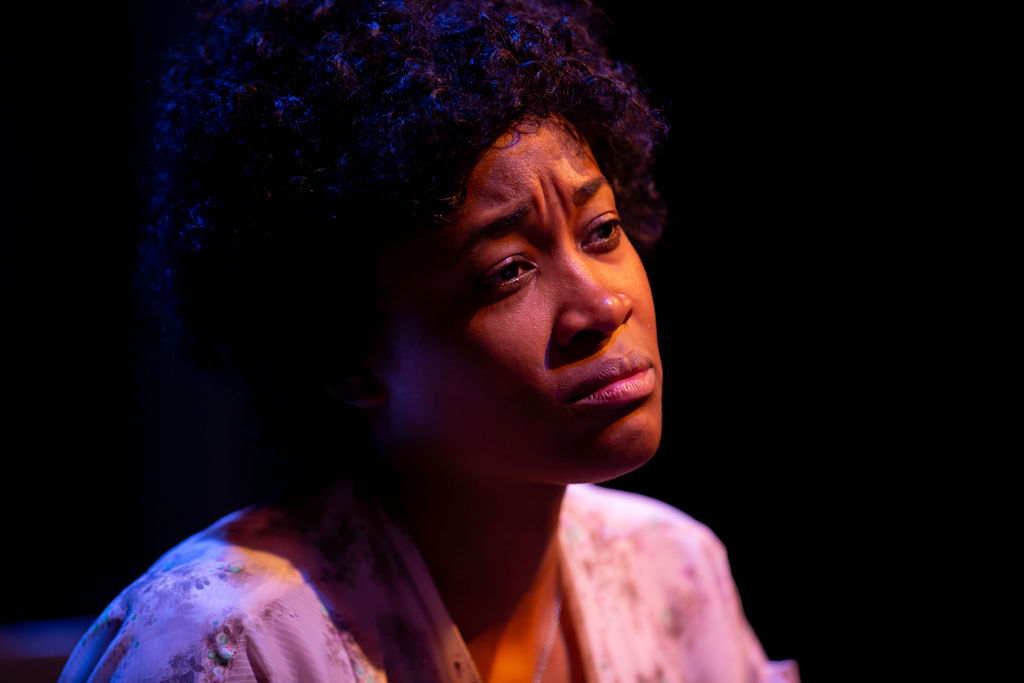best of enemies | celia aloma interview
We sat down and chatted with Celia Aloma, who plays Ann Atwater in Best of Enemies!
What drew you to Best Of Enemies? Do you remember your feelings after reading the script for the first time?
When I saw the opportunity to audition for the Best of Enemies, I jumped on it immediately. It’s far and in between I get a chance to play a fully flushed out character not laced with stereotypes. I don’t recall exactly how I felt after reading the script the first time but I imagined I thought 50 years later and still so little has changed. Marginalized groups are still facing inequality. Look at what’s happening with the Wet’suwet’en and other Indigenous who stand in solidarity with them. Today alone RCMP arrested Mohawks in a peaceful protest in Ontario.
In this play you are playing a real person, Ann Atwater. Where did you start with your process with Ann? How do you integrate historical research/resources with your own creativity and interpretation?
I started researching Durham and what was happening in North Carolina in the last 60’s and early 70’s. Then I looked for videos, books and articles about Ann Atwater and her fight against desegregation in the south. I kept a recording of her voice on my phone on repeat to learn the rhythm of her voice, her cadance and that wonderful accent of hers. I was coached along with the rest of the cast by dialect coach Erin Ormund who helped me find the right sounds for Ann.
Bill Riddick uses a charrette to structure Ann and C.P.’s negotiations. What are your thoughts on charrettes as a tool? Do you think it is a method that could be used to help resolve the intense conflicts we face now?
I think the charrette works. It’s a great way to get the community involved and force change. It may not change hatred and bigotry but it will put everyone on common ground.
This play has strong language, racial slurs, hate speech, and the looming violence of bigotry. What is important for you as an actor to navigate these given circumstances safely in rehearsal and performance?
In rehearsal when handling such volatile language we need to create a safe space and ensuring these racial slurs are only being said by the actors on stage reading words off the script. When people start using these words in directions or regular conversation it becomes disrespectful to the work, and the real individuals we are playing. It’s important that when dealing with such strong hate speech that a conversation of racial sensitivity of what is okay or not okay to say and do when approaching a scene really helps to diminish any ignorance.
Why do you think Best of Enemies is a story that matters?
Best of Enemies matters because history is cyclical. This is more than a race war, it’s about classism between the haves and the have nots. Each race thinks the other is the obstacle when in reality it is the oppression of the capitalistic government. Right now in Canada we have a capitalistic war going on ourselves. The colonization of the Indigenous people as they are being forced off their unceded land by armed forces in the name of pipeline expansion that was never given approval by the Heridatary Chiefs of the Wet’suwet’en, even though they provided two alternate routes for said pipeline.
What is next for you?
Next after BEST OF ENEMIES is DA KINK IN MY HAIR written by Trey Anthony, I will be playing Stacey-anne a beautiful young girl from my home country of Jamaica. Come on out and check us out on the Granville Island Stage from April 16th to May 16th. Hope to see you there!
« pacific theatre | covid-19 | best of enemies | covid-19 cancellations »